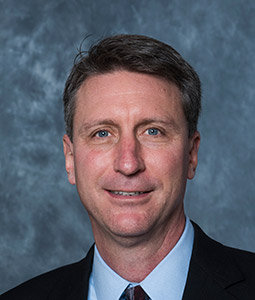Darla Moore School of Business
Directory
Paul Bliese
| Title: | Jeff B. Bates Professor of Management and Department Chair |
| Department: | Management Darla Moore School of Business |
| Email: | paul.bliese@moore.sc.edu |
| Phone: | 803-777-5957 |
| Office: | DMSB 410B |
| Resources: | Curriculum Vitae [pdf] |

Background
Paul D. Bliese is the Jeff B. Bates Professor of Management and Management Department Chair at the Darla Moore School of Business. He received a Ph.D. from Texas Tech University and a B.A. from Texas Lutheran University. After graduating in 1991, he worked for a year for the Bureau of Labor Statistics. In 1992, he joined the US Army, where he spent 22 years as a research psychologist at the Walter Reed Army Institute of Research. In his last military assignment, he served as the director of the Center for Military Psychiatry and Neuroscience and retired at the rank of Colonel in 2014.
Over his military career, Bliese directed a large portfolio of research initiatives examining stress, leadership, well-being and performance. From 2007 to 2014, he oversaw the US Army’s Mental Health Advisory Team program assessing the morale and well-being of soldiers deployed to Iraq and Afghanistan. Throughout his professional career, Bliese has led efforts to advance statistical methods and apply analytics to complex organizational data. He developed and maintains the multilevel package for the open-source statistical programming language R, and his research has been influential in advancing organizational multilevel theory. He has published in numerous outlets and served on many editorial boards. He was an Associate Editor for the Journal of Applied Psychology from 2010 to 2017 and is the incoming Editor-in-Chief for Organizational Research Methods.
- MGMT 725 Strategic HR Metrics
- DMSB 723 Leading Teams and Organizations
- BADM 790 Capstone HR Consulting Analytics Project
- MGMT 872: Seminar in Management Research Methodology (Multilevel)
My courses are focused on learning skills that enhance decision-making and that strengthen confidence in research findings. Whether the class is focused on statistics or leadership, my goal is for students to develop practical skills that will help them be effective in their chosen professions.
Recently I have been working with variants of longitudinal statistical models. One variant provides a unique opportunity to understand the impact of events such as becoming a boss for the first time or transitioning from one job to another. Another variant of the statistical model provides a way to understand how groups do or do not become more similar in terms of mood and perceptions over time.
Over the years I have had opportunities to develop and test programs designed to help military service members adjust following combat deployments or enhancing soldiers’ ability to make the transition when first joining the Army. Many of the ways we tested intervention programs in the military can be applied in other contexts. By using state of the art research designs, organizations can better identify programs that enhance employee well-being and performance.
Almost all my current projects involve some form of longitudinal data. One project is focused on optimal ways to analyze data collected in two-waves where individuals are randomly assigned to different interventions. Another project is focused on how tank crews do or do not develop similar perceptions of team climate and how that relates to performance. Finally, a third project involves tracking changes in attitudes among members of the university band over a semester and seeing how unexpected events like a surprise win in football impacts commitment.
In a number of my classes, we work with firms on real-time analytic projects. In these projects doctoral students have a unique opportunity to mentor and teach and they also gain access to rich data. I also involve students on projects that rely on data from Army collaborators. Finally, I enjoy working on projects that doctoral students initiate and lead (such as the study of the SC university band).
Firms are routinely collecting more and more interesting data, and I believe that I have an opportunity to help students and firms understand how these data can be used in ways that benefit employees and enhance firm performance.
Spending time with family and friends. Baking bread. Traveling to remote corners of the Earth to take pictures of birds like the Abyssinian Roller.